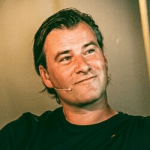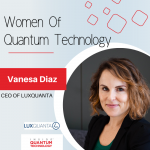Quantum News Briefs July 5: Quantum Delta NL receives €60.2M to accelerate Europe’s quantum tech developments; U of Vienna Scientists design unconditionally secure system for digital settings; U of Pennsylvania launches new center to advance quantum science and technology research + MORE

Quantum News Briefs July 5: Quantum News Briefs July 5: Quantum Delta NL receives €60.2M to accelerate Europe’s quantum tech developments; Quantagonia has raised €4.3 million to bridge the gap between classical and quantum computing; U of Pennsylvania launches new center to advance quantum science and technology research + MORE
Quantum Delta NL receives €60.2M to accelerate Europe’s quantum tech developments
 Delft-based Quantum Delta NL (QDNL), a public-private foundation for excellence in quantum innovation, announced on Tuesday, July 3 that it has raised €60.2M in funding from The National Growth Fund (NGF) as the Dutch contribution to the trilateral agreement with France and Germany. Quantum News Briefs summarizes the Silicon Canals article by Vishal Singh.
Delft-based Quantum Delta NL (QDNL), a public-private foundation for excellence in quantum innovation, announced on Tuesday, July 3 that it has raised €60.2M in funding from The National Growth Fund (NGF) as the Dutch contribution to the trilateral agreement with France and Germany. Quantum News Briefs summarizes the Silicon Canals article by Vishal Singh.
The joint programme’s goal is to improve cross-border strategic R&D links in order to accelerate the growth of the European Quantum Technologies Industry.
France, Germany, and the Netherlands are leading member states in terms of their respective R&D and startup ecosystems, and the maturity of their national quantum projects.
In November 2022, officials of the respective governments already signed the Memorandum of Understanding (MoU) with the intention to collaborate. The Dutch are funding the implementation with this investment.
In order to support the plan, France and Germany have pledged their own finances for a joint R&D call and the creation of shared facilities in the style of a “European Quantum Campus”, while also utilising funding from their own state programmes. Click here to read the article in-entirety
U of Vienna Scientists design unconditionally secure system for digital settings
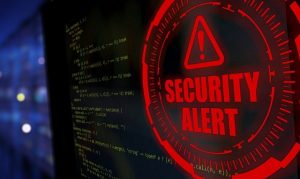 Scientists from the University of Vienna have now designed an unconditionally secure system for combining modern cryptographic techniques with the fundamental properties of quantum light.for shopping in digital settings. Quantum News Briefs summarizes.
Scientists from the University of Vienna have now designed an unconditionally secure system for combining modern cryptographic techniques with the fundamental properties of quantum light.for shopping in digital settings. Quantum News Briefs summarizes.
The demonstration of such “quantum-digital payments” in a realistic environment has just been published in Nature Communications.
A research team led by Prof. Philip Walther from the University of Vienna has shown how the quantum properties of light particles or photons can ensure unconditional security for digital payments. In an experiment the researchers have demonstrated that each transaction cannot be duplicated or diverted by malicious parties, and that the user’s sensitive data stays private. “I am really impressed how the quantum properties of light can be used for protecting new applications such as digital payments that are relevant in our every day’s life”, says Tobias Guggemos.
For enabling absolute secure digital payments, the scientists replaced classical cryptographic techniques with a quantum protocol exploiting single photons. During the course of a classical digital payment transaction the client shares a classical code – called cryptogram – with his payment provider (e.g. a bank or credit card company). This cryptogram is then passed on between customer, merchant and payment provider. In the demonstrated quantum protocol this cryptogram is generated by having the payment provider sending particularly prepared single photons to the client. For the payment procedure, the client measures these photons whereby the measurement settings depend on the transaction parameters. Since quantum states of light cannot be copied, the transaction can only be executed once. This, together with the fact that any deviation of the intendent payment alters the measurement outcomes, which are verified by the payment provider, makes this digital payment unconditionally secure.
The researchers successfully implemented quantum-digital payments over an urban optical fiber link of 641m, connecting two university buildings in down-town Vienna. Click here to read original MirageNews article in-entirety.
U of Pennsylvania launches new center to advance quantum science and technology research
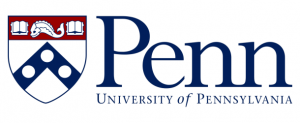 The University of Pennsylvania recently announced the launch of its new Center for Quantum Information, Engineering, Science and Technology.
The University of Pennsylvania recently announced the launch of its new Center for Quantum Information, Engineering, Science and Technology.
Penn QUIEST is the product of a joint initiative between the School of Engineering and Applied Science and the School of Arts and Sciences. Electrical and Systems Engineering professor Lee Bassett will serve as the center’s director, along with an executive committee comprised of faculty from both schools. The center aims to advance Penn’s capabilities in quantum research by facilitating collaboration across several STEM fields.
“This is an exciting moment,” Bassett said. “As the only center of its kind in the Philadelphia area, Penn QUIEST will advance the near-term objectives of quantum information science, helping to develop quantum computers, quantum networks, and quantum sensors in our city.”
Penn has long offered programs in quantum-related fields, including physics, biotechnology, and information technology, but had not yet established a hub for quantum science. QUIEST will allow Penn to centralize its pre-existing involvements in related subjects and enhance the impact that researchers at Penn make, Bassett told Technical.ly.
QUIEST aims to offer new possibilities for academic discourse, projects, and experimentation across departments and disciplines. In addition to assembling 30 current faculty members, the center will gain a group of new faculty hires through the Engineering School. Click here to read complete article in The Daily Pennsylvanian.
Quantum Machines forges strategic partnerships with leading Korean research & investment groups
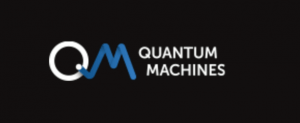 Quantum Machines has announced the signing of three significant Memorandums of Understanding (MOUs) with prominent Korean research and investment organizations. The MOUs, signed with the Korea Research Institute of Standards and Science (KRISS), Korea Quantum Computing Industry Leaders’ Alliance (QCILA), and Orientom, will foster collaboration and strengthen the relationship between local Korean researchers, Quantum Machines, and the Israeli Quantum Computing Center (QCC), which is being developed and managed by Quantum Machines.
Quantum Machines has announced the signing of three significant Memorandums of Understanding (MOUs) with prominent Korean research and investment organizations. The MOUs, signed with the Korea Research Institute of Standards and Science (KRISS), Korea Quantum Computing Industry Leaders’ Alliance (QCILA), and Orientom, will foster collaboration and strengthen the relationship between local Korean researchers, Quantum Machines, and the Israeli Quantum Computing Center (QCC), which is being developed and managed by Quantum Machines.
The signing ceremony for the MOUs took place on June 27 as part of Korea Quantum Week at the Dongdaemun Design Plaza in Seoul. It brought together representatives from Quantum Machines, KRISS, QCILA, and Orientom to commemorate the beginning of these substantial collaborations. The event provided an opportunity for stakeholders to share insights, explore potential synergies, and discuss future prospects in quantum computing.
KRISS, the Korea Research Institute of Standards and Science, serves as the national measurement standards laboratory for the Republic of Korea. As a government-funded institute dedicated to advancing measurement technologies, KRISS plays a crucial role in providing a broad range of national standards. This partnership with KRISS will facilitate the exchange of expertise and knowledge in the field of quantum computing, enabling Quantum Machines and KRISS to further advance quantum control systems.
The Korea Quantum Computing Industry Leaders’ Alliance (QCILA) is a consortium of commercial entities in Korea comprising telecom companies, including Telcos, LGE, Samsung, POSCO ICT, and more. The MOU with QCILA aims to foster collaboration between Israeli and Korean stakeholders and facilitate technological advancements through joint efforts.
These MOUs represent significant milestones in the global quantum computing landscape. By partnering with leading Korean research and investment groups, Quantum Machines reinforces its commitment to advancing the field of quantum control systems and fostering international collaboration. These partnerships will facilitate knowledge exchange, technology transfer, and joint research efforts, contributing to the accelerated development of quantum computing worldwide.
Sandra K. Helsel, Ph.D. has been researching and reporting on frontier technologies since 1990. She has her Ph.D. from the University of Arizona


















